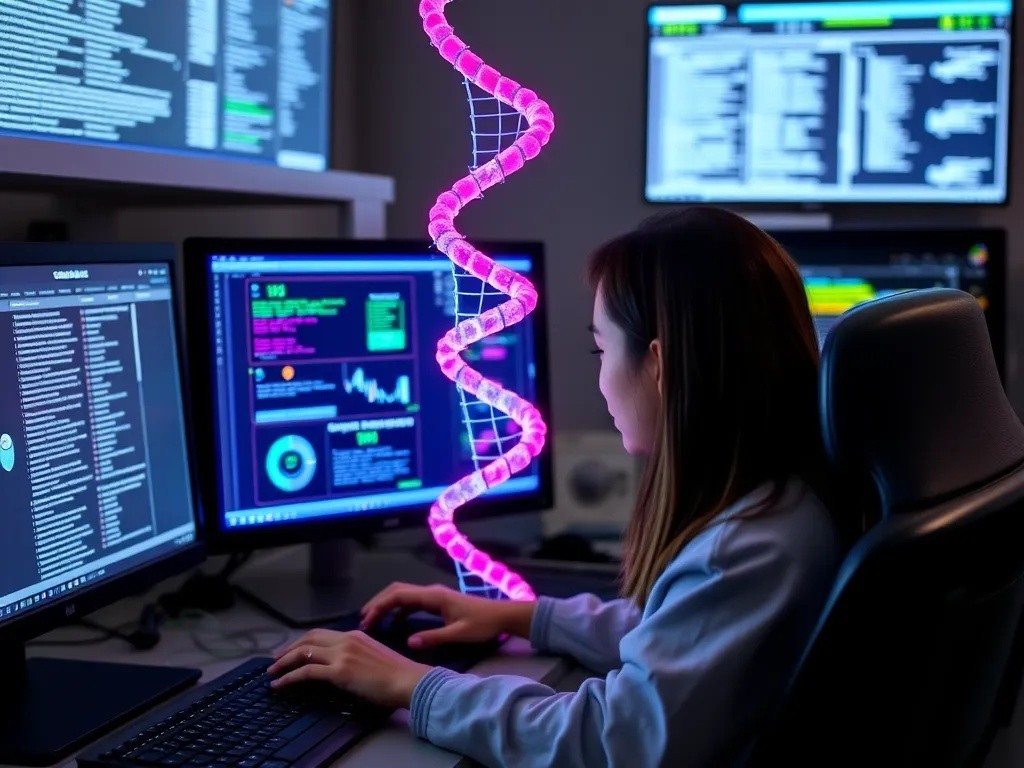In recent years, there has been a significant advancement in the field of Artificial Intelligence (AI) and Augmented Reality (AR). These technologies have become increasingly popular and have the potential to enhance virtual experiences in various fields such as gaming, education, healthcare, and...
Computer Creates Medicines Tailored Specifically for Your Genetics

The future of medicine is becoming increasingly personalized, with computers now capable of designing treatments specifically tailored to an individual's unique genetic makeup. This revolutionary approach, known as precision medicine or personalized medicine, represents a dramatic shift from the traditional "one-size-fits-all" approach to healthcare.
The Science Behind Genetic Personalization
Every person carries a unique genetic code that influences how their body processes medications, responds to treatments, and develops diseases. Advanced computer algorithms can now analyze these genetic variations to predict which medications will be most effective for each individual patient.
How Computers Analyze Genetic Data
Modern computational systems use sophisticated machine learning algorithms to process vast amounts of genetic information. These systems can identify specific genetic markers that affect drug metabolism, efficacy, and potential adverse reactions. The process involves several key steps:
- Genome sequencing to identify genetic variations
- Pattern recognition to correlate genetics with drug responses
- Predictive modeling to forecast treatment outcomes
- Real-time optimization of dosages and drug combinations
Current Applications in Healthcare
Several areas of medicine are already benefiting from computer-generated personalized treatments. Cancer therapy has seen particularly significant advances, with computers helping oncologists select targeted therapies based on both the patient's genetics and the genetic profile of their tumor.
Pharmacogenomics in Practice
Pharmacogenomics, the study of how genes affect drug response, is being revolutionized by computational approaches. Computers can now predict how patients will respond to common medications like:
- Blood thinners such as warfarin
- Antidepressants and psychiatric medications
- Pain medications and anesthetics
- Cardiovascular drugs
- Cancer chemotherapy agents

Benefits of Computer-Tailored Medicine
The advantages of using computers to create personalized medicines are substantial and far-reaching. Patients experience improved treatment outcomes with fewer side effects, while healthcare systems benefit from reduced costs and more efficient resource allocation.
Enhanced Treatment Effectiveness
Computer-tailored medicines can increase treatment success rates by up to 70% compared to standard approaches. By matching the right drug to the right patient at the right dose, computers help eliminate much of the trial-and-error process traditionally associated with finding effective treatments.
Reduced Adverse Drug Reactions
Adverse drug reactions affect millions of patients annually and represent a significant cause of hospitalization. Computer analysis of genetic data can identify patients at risk for specific drug reactions before treatment begins, potentially preventing dangerous complications.
Challenges and Future Developments
Despite its promise, computer-generated personalized medicine faces several challenges that researchers are actively addressing. Data privacy concerns, the need for diverse genetic databases, and the complexity of gene-drug interactions all present ongoing obstacles.
Technological Limitations
Current computational models still require refinement to account for the complex interplay between genetics, environment, and lifestyle factors. Researchers are developing more sophisticated algorithms that can integrate multiple data sources to provide even more accurate treatment predictions.
The Road Ahead
The future of computer-tailored medicine looks increasingly bright. Emerging technologies like quantum computing and advanced artificial intelligence promise to unlock even more precise treatment possibilities. Within the next decade, we may see computers capable of designing entirely new medications from scratch, tailored not just to genetic profiles but to real-time physiological conditions.
Conclusion
Computer-generated personalized medicine represents one of the most significant advances in healthcare technology. As computational power continues to grow and our understanding of genetics deepens, the ability to create medicines tailored specifically to individual genetic profiles will become increasingly sophisticated and accessible. This technology promises to transform healthcare from a reactive system focused on treating disease to a proactive approach that prevents illness and optimizes health outcomes for every individual.
The integration of computer technology with genetic science is ushering in a new era of precision medicine, where treatments are as unique as the patients who receive them. This personalized approach not only improves patient outcomes but also represents a more efficient and cost-effective way to deliver healthcare in the 21st century.



